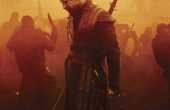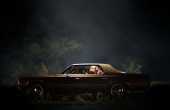Brandon T. Gass
Studying Philosophy and English Literature at New Mexico State University. Film and Philosophy are my vocations.
Contributor II
- Plebian Penman
- Common Writer
- Lurker
- Pssst
- Sharp-Eyed Citizen
- Town Watch
- Actor
- Producer
- ?
- Articles
8 - Featured
4 - Comments
38
- Ext. Comments
24 - Processed
33 - Revisions
19
- Topics
16 - Topics Taken
0 - Notes
17
- Topics Proc.
14 - Topics Rev.
1
- Points
1581 - Rank
76 - Score
875
Latest Articles
Latest Topics
Why Do People Not Like To Read Anymore?Why is it that people find it so difficult and unsavory to read? Very few people actually enjoy and take it upon themselves to read anything from literature, modern works, the news, or frankly anything that consists of many words that require analytical thought to understand. Has this become too much for people? Literacy should never be compromised.
|
Absurdism 101: Albert Camus' PhilosophyAlbert Camus is one of the fathers of Absurdist philosophy and one of the greatest writers of all time; his philosophical works The Myth of Sisyphus and The Rebel have defined his ideas, while his novels such as The Stranger and The Plague have actualized them. Examine and breakdown the fundamentals of absurdism.
|
Existential Themes in The OfficeAn in-depth analysis of the popular TV show The Office and how it rises above mere entertainment to become a genuine, nihilistic examination of everyday American office workers and the meaning they can find in their cyclical lives.
|
Violence Vs. Sex in MoviesGeneral American movie-goers tend to object to sexual content in films as being inappropriate or pointless ("Why do we need to see it?") but conversely don't object to violence and gore. Is it not more vulgar to watch people get murdered or tortured even rather than to see a little bit of intimacy on screen? Dissect examples of popular films and their appeal to either violence or sex, and the audience's response.
|
On New Queer CinemaThe film movement New Queer Cinema was meant to describe independent films of the 1990s that helped bring queer narratives to the screen. This article would review the history, importance, and films of the movement. |
The Failure of Suicide SquadWith the latest bunt in the cinematic superhero world, Suicide Squad, it has become clear that critics are collective tired of the ringtone narrative that nearly all superhero films cradle. Suicide Squad specifically, held the concept of 'fight fire with fire,' which obviously entails that things won't work out. Examine the failures of Suicide Squad as a whole and what it might take (if possible) to have another good superhero film like The Dark Knight.
|
The Best Sequels of All TimeWhile it is common for the second film in a series to ruin the franchise, many of them MAKE the franchise; such is the case with Kill Bill and The Dark Knight Trilogy. Perhaps these films' sequels were so monumental because they were planned out to take place over three films or two films, rather than the corporate industry suits just wanting to force, say, another Iron Man onto the screen to make more money. These turn into hollow films.
|
The filmic sisterhood of Jurassic World and Kong: Skull IslandJust from the new Kong: Skull Island, much can be asserted about the aesthetic and narrative relationship between Kong and Jurassic World. Both films are enormous block-buster snowball movies filled with star-studded casts thrown in disaster scenarios of utter peril and outrageous visual effects. A parallel/examination of the two movies and what they say about the state of hollywood would be highly relevant.
|
Latest Comments
| Lost in Hyperreality: Entering The Museum of Tolerance | |
Nice, relevant, and helpful mini-treatise. | Using Zen Philosophy to Improve Creativity and Overcome Writer’s Block |
Interesting examination of classic epic poetry. | Paradise Lost: A Shift in Narrative Language After the Fall |
Perhaps The Social Network would also fit nicely in this list. | The 21st Century Films Prepared For Classic Status |
Great article — Breaking Bad was full of artistic creativity and depth. | Objects in Breaking Bad: If Things Could Talk |
Nietzsche was a brilliant philologist and philosopher. His pioneering of the philosophical doctrine nihilism and his idea of eternal return also played interesting roles in his thought. | The Death of a Purposeful Man |
While I usually loathe superhero movies, they do tend to have interesting ethical and philosophical undertones to the nature of the hero and his/her circumstances. | Superhero Villains and their Struggle with Morality |
Snowpiercer was a surprisingly good indie film and Chris Evan’s best work to date. | Snowpiercer and Social Revolution |








Enlightening article!